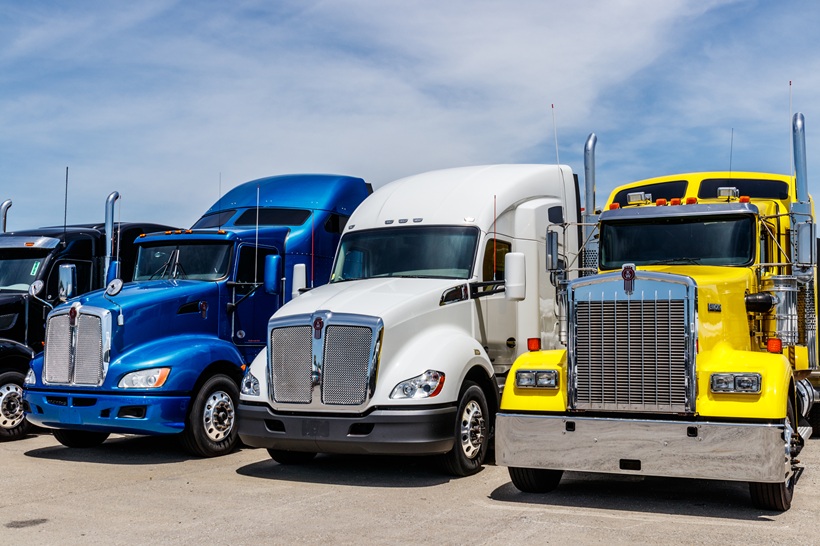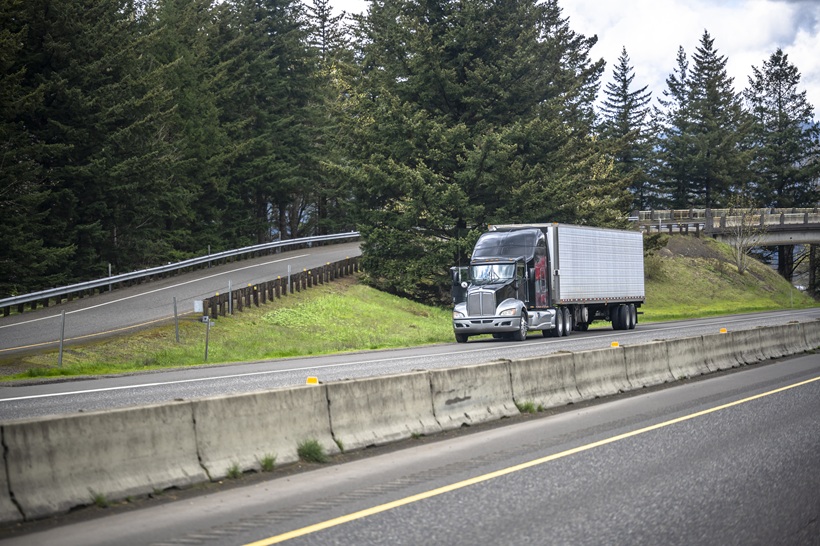
AI Adoption in Logistics: Revolution or Recalibration?
During the last few years, artificial intelligence has gone from a topic espoused as the next big thing by data scientists and tech executives to the present-tense, here-now big thing that affects every major industry in the economy. Conversations about AI run the gamut from practical, day-to-day use cases to optimistic and pessimistic predictions about the entire world economy and the fate of mankind.
In logistics, AI is being used today to bring productivity to a new level, with a significant amount of traditional manual work in the back office being reduced or automated thanks to AI-powered products. But most of the story of AI in logistics and trucking is yet to be written.
To separate fact from fiction in logistics AI adoption and development, Transflo Chief Product Officer Justin King joined the panel, “Beyond the Hype: Industry Leaders Chart the Future of AI Deployments” on Feb. 28 at the McLeod Software AI Conference in Birmingham, Alabama. Vooma Co-Founder Jesse Buckingham and Parade VP of Product Lindsay Watt joined King on the panel, moderated by Seth Clevenger of Transport Topics.
Here are three takeaways mentioned by King and the panel:
1. Humans aren’t going anywhere, but the nature of work will change.
Predictions about autonomous trucks populating the freeways and AI handling every aspect of the shipper-carrier or driver-broker-carrier relationship may have a place in science fiction, but they’re not realistic now. Instead, the current role of AI in logistics lies in taking over time-consuming, everyday tasks.
During the panel, the experts mentioned a variety of opportunities for AI in the sector that can improve upon traditional workflows. To that end, AI models trained by a variety of data sets can approximate human decision-making power for many lower-risk decisions. Some use cases include:
- Document processing
- Document scanning
- Chatbots to answer drivers’ questions
- Driver safety risk
- Fleet maintenance
- Optimizing freight bids
- Identifying trends
The panelists mentioned that the near future of AI in logistics should be a collaborative one, with humans in charge and using AI to get things accomplished, leaving brain power to more complex problems and important business relationships. Furthermore, human-AI collaboration will require a degree of additional workforce training to ensure employees understand and use the technology in the best ways for the business.
2. Al adoption may take time for organizations to adopt.
While AI can help logistics and trucking companies save money and time, implementing it may make employees throughout the organization wary. On the management side, AI will evolve very rapidly in the coming years, which will make adapting and pivoting to new capabilities crucial.
This is why King and the rest of the panel believe it’s imperative for companies to clearly communicate the problems can be solved with AI and reassure the workforce that they – not any AI platform – are the most important parts of the business.
“It starts with leadership… and being intellectually curious, right?” said King. “If you’re running an IT department, for example, asking your QA folks, ‘Hey, have you used any sort of AI tool to debug this code?’”
King also mentioned that small-scale experimentation of AI tools across the board at a company can produce a “force multiplier” effect, leading to higher-quality code, a better overall product, and greater trust in AI as its capabilities evolve.
Meanwhile, carriers and brokers who are apprehensive of AI or want to hold on to the technologies of yesterday too long run the risk of being outpaced by the competition and having significant obstacles to AI development once the technology becomes inevitable.
“As with any new technology, the companies who embrace it early on and use it, even in small ways, don’t expect it to change the business overnight,” said King. “But even if you’re deploying it in small ways and you’re leveraging some technology of software to help your business, you will be on the forefront of your competitors.”
3. LLMs can help fuel the data engines of tomorrow.
Without access to lots of data – and good data, at that – AI models don’t go anywhere and offer little value to logistics companies. Brokers and carriers typically have massive amounts of data in a transportation management system, but not all of it may be accurate or structured in a way that’s conducive to AI development.
Thankfully for those organizations, large language models (LLMs) used by a skilled and experienced technology provider will make it feasible to validate and clean up data for use in a practical, time-saving AI model powered by machine learning.
“Using AI to create the dataset is actually one of the most interesting opportunities that we have right now,” said King. “Historically, it would have been very costly to capture all of the data off of the documents. But now, using OCR (optical character recognition) and AI, you can do that in a fairly cost-effective way.”
How Transflo approaches AI
The Transflo team takes a customer-focused and sustainable approach to AI. They use multiple AI models, including LLMs, that are trained internally. The team also favors progressive AI development that takes time to learn and analyze customers’ business needs so they can deliver solutions that save time and money.
Transflo’s Workflow AI solution has helped customers drastically slash the time spent on formerly manual processes like billing and data extraction. In the case of Overland Park, Kansas-based freight brokerage Ryan Transportation, Workflow AI’s deployment saved up to two hours of daily work for every employee, which enabled staff to better utilize their skills and focus on more strategic work.
To learn more about Workflow AI and how Transflo’s solutions can help move your logistics business forward, contact sales today.
TL;DR
AI in logistics is moving from hype to reality, with current applications focused on automating manual back-office tasks rather than replacing humans entirely. Key insights from a logistics AI panel at the McLeod Software AI Conference include: (1) AI will handle routine work while humans focus on complex decisions and relationships, (2) companies should start small-scale AI experimentation now to avoid falling behind competitors, and (3) large language models can help clean up messy logistics data to power better AI systems. The prevailing message is that AI adoption should be gradual and human-centered, with early adopters gaining competitive advantages through improved productivity and cost savings.



